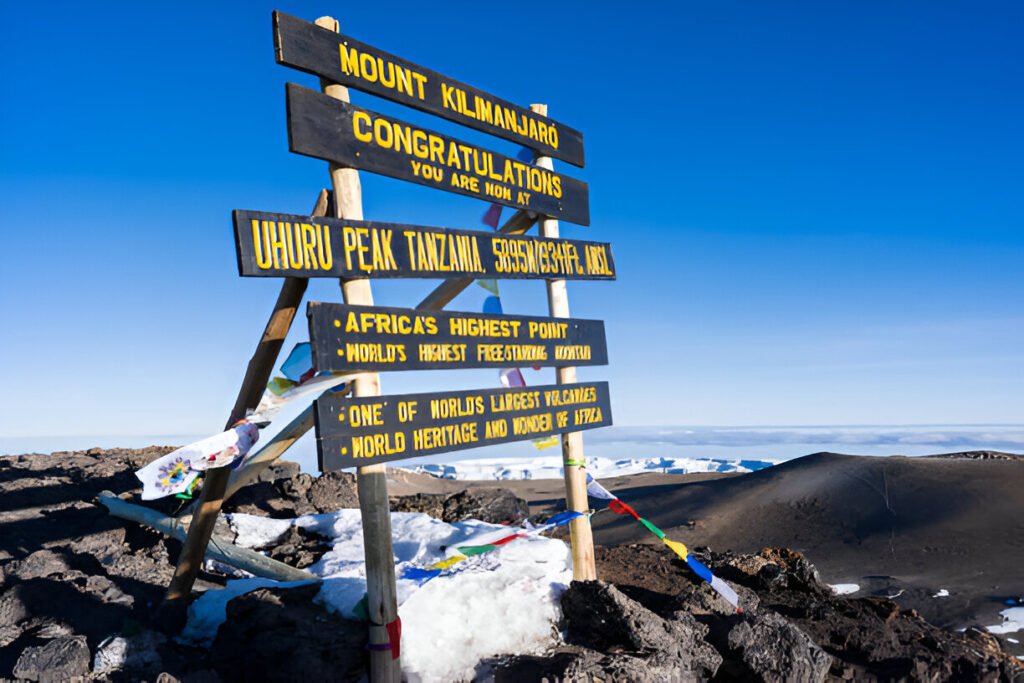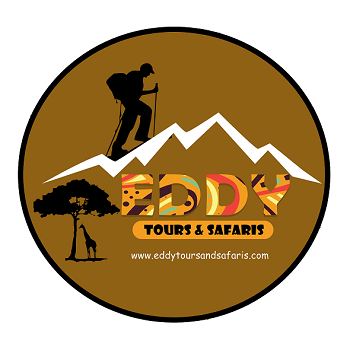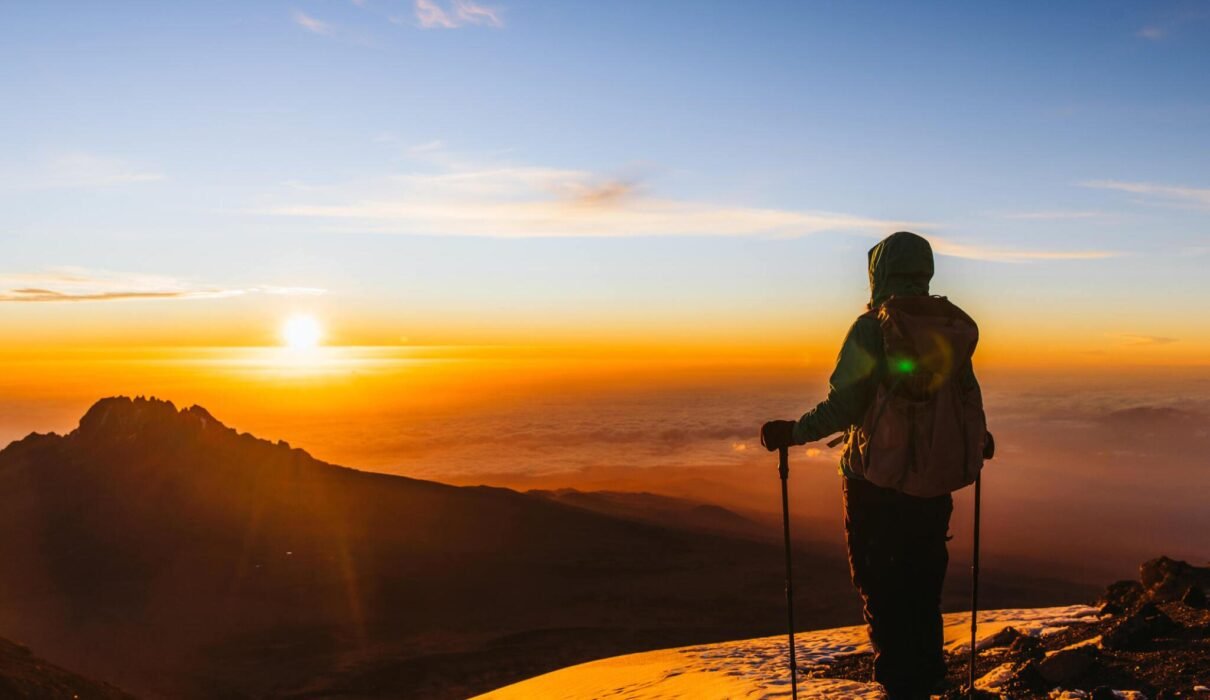7-days Kilimanjaro trek Lemosho, From 1,600$ price per person
7-days Kilimanjaro trek Lemosho Route is widely regarded as the most scenic trail to Uhuru Peak (5,895m), the highest point in Africa. It offers stunning landscapes, a gradual ascent for better acclimatization, and a high summit success rate. This route takes you through rainforests, moorlands, alpine deserts, and glaciers, providing an unforgettable lifetime adventure.
Why Choose the 7-days Kilimanjaro trek Lemosho ?
Higher success rate due to gradual altitude acclimatization
Scenic and diverse landscapes with fewer crowds compared to other routes
Best for first-time climbers, offering a balanced challenge with stunning views
Wildlife spotting in the lower rainforest section, including monkeys and exotic birds
More time to acclimatize, reducing the risk of altitude sickness

Detailed 7-days Kilimanjaro trek Lemosho Itinerary
Day 1: Londorossi Gate (2,100m) to Mti Mkubwa Camp (2,820m) – Rainforest Zone
Your journey begins with a morning pickup from Moshi or Arusha, followed by a scenic drive to Londorossi Gate for park registration. After permits are issued, a short drive takes you to the trailhead. The trek starts with a gentle walk through the lush rainforest, where you may spot black-and-white colobus monkeys and other wildlife. Arrive at Mti Mkubwa Camp (Big Tree Camp), where your tents will be set up for the first night under the forest canopy.
Hiking distance: 6 km
Hiking time: 3-4 hours
Elevation gain: 720m
Day 2: Mti Mkubwa Camp (2,820m) to Shira 2 Camp (3,850m) – Moorland Zone
Leaving the rainforest behind, the trail ascends into the heath and moorland zone, with stunning views of Kilimanjaro’s Shira Plateau. The landscape changes dramatically as you hike past giant heathers and volcanic rock formations. After passing Shira 1 Camp, continue across the plateau to Shira 2 Camp, where you’ll get breathtaking sunset views of Mount Meru in the distance.
Hiking distance: 10 km
Hiking time: 7-8 hours
Elevation gain: 1,030m
Day 3: Shira 2 Camp (3,850m) to Barranco Camp (3,950m) via Lava Tower (4,630m) – Acclimatization Day
This is a key acclimatization day, as you trek up to Lava Tower (4,630m), a dramatic volcanic rock formation. The high-altitude hike helps your body adapt to lower oxygen levels. After lunch at Lava Tower, you descend to Barranco Camp (3,950m), passing through the strange, alien-like Senecio trees. This “climb high, sleep low” approach significantly increases the chances of a successful summit.
Hiking distance: 10 km
Hiking time: 6-7 hours
Elevation gain: 780m (then descend 680m)
Day 4: Barranco Camp (3,950m) to Karanga Camp (4,035m) – Climbing Barranco Wall
Begin the day with the exciting ascent of Barranco Wall, a 300-meter rock face that looks intimidating but is actually a fun and non-technical climb. At the top, you’ll be rewarded with stunning views of the Karanga Valley and glaciers. The trail then undulates through rocky terrain before arriving at Karanga Camp, where you’ll rest and prepare for the final ascent.
Hiking distance: 5 km
Hiking time: 4-5 hours
Elevation gain: 85m
Day 5: Karanga Camp (4,035m) to Barafu Camp (4,673m) – Summit Base Camp
A steep but gradual climb leads to Barafu Camp, the final base camp before your summit attempt. The landscape is barren, resembling a Martian desert due to high-altitude conditions. Arrive early in the afternoon to rest, hydrate, and prepare for the midnight summit push.
Hiking distance: 4 km
Hiking time: 3-4 hours
Elevation gain: 638m

Day 6: Summit Day – Barafu Camp (4,673m) to Uhuru Peak (5,895m) to Mweka Camp (3,100m)
The most challenging but rewarding day begins just after midnight. You will trek slowly and steadily in the freezing cold, illuminated only by your headlamp. After several hours of climbing, you reach Stella Point (5,756m) at sunrise, where you’ll witness one of the most beautiful sunrises in the world. A final push takes you to Uhuru Peak (5,895m), the Roof of Africa.
After celebrating your achievement and taking memorable photos, descend back to Barafu Camp for a short rest before continuing to Mweka Camp (3,100m) for the night.
Hiking distance: 17 km
Hiking time: 12-14 hours
Elevation gain: 1,222m (then descend 2,795m)
Day 7: Mweka Camp (3,100m) to Mweka Gate (1,640m), Return to Moshi/Arusha
The final descent takes you back through the rainforest, where you’ll hear the sounds of tropical birds and monkeys. Arriving at Mweka Gate, you will receive your summit certificate before driving back to Moshi or Arusha, marking the end of your once-in-a-lifetime Kilimanjaro adventure.
Hiking distance: 10 km
Hiking time: 3-4 hours
Elevation loss: 1,460m
Why 7-days Kilimanjaro trek Lemosho ?
Higher summit success rate (90%+) due to better acclimatization
Less crowded and more scenic compared to other routes
Diverse ecosystems, from rainforests to glaciers
Best for adventure seekers, providing an incredible mix of challenges and rewards
Wildlife encounters in the lower elevations
Gradual ascent, reducing the risk of altitude sickness
This 7-day Lemosho Route for 2026/2027 offers the best chance to summit Kilimanjaro successfully, combining breathtaking landscapes, adventure, and the ultimate sense of achievement. Whether you’re a first-time trekker or an experienced climber, this route ensures an unforgettable lifetime experience on Africa’s highest peak.
7-days Kilimanjaro trek Lemosho
7-days Kilimanjaro trek Lemosho, Includes:
Kilimanjaro trekking according to the itinerary
Professional, English-speaking Wilderness First Responder & CPR certified Guide
Proper Ration of Mountain crew (Cook & Porters)
Pre and Post accommodations (2 nights Bed and Breakfast)
Airport Transfers
Meals according to the itinerary
Drinking water and Full Board Meals
All National Park & Hut Fees, Crew Permits and VAT
Fair and Sustainable Salary Crew Wages
Gate Transfers
Complimentary Oxygen Cylinder
Quality Imported Equipments
7-days Kilimanjaro trek Lemosho, Excludes:
Flights
Visa fees
Travel or Medical Insurance is required and you should ask for Recommendation
Gamow Bag
Medication
Tips for porters and mountain crew (20% Industry Standard Recommended)
Personal spending money for souvenirs etc.
Energy food & beverages, alcoholic and soft drinks
Personal hire gear such as trekking poles, sleeping bags, etc.
Additional lodge nights if early descent from the mountain $150 per room

